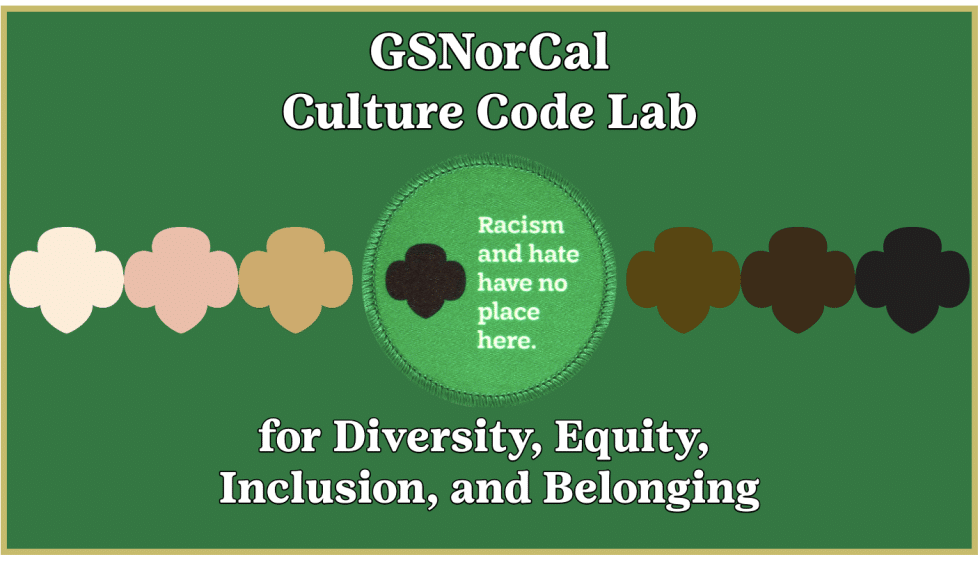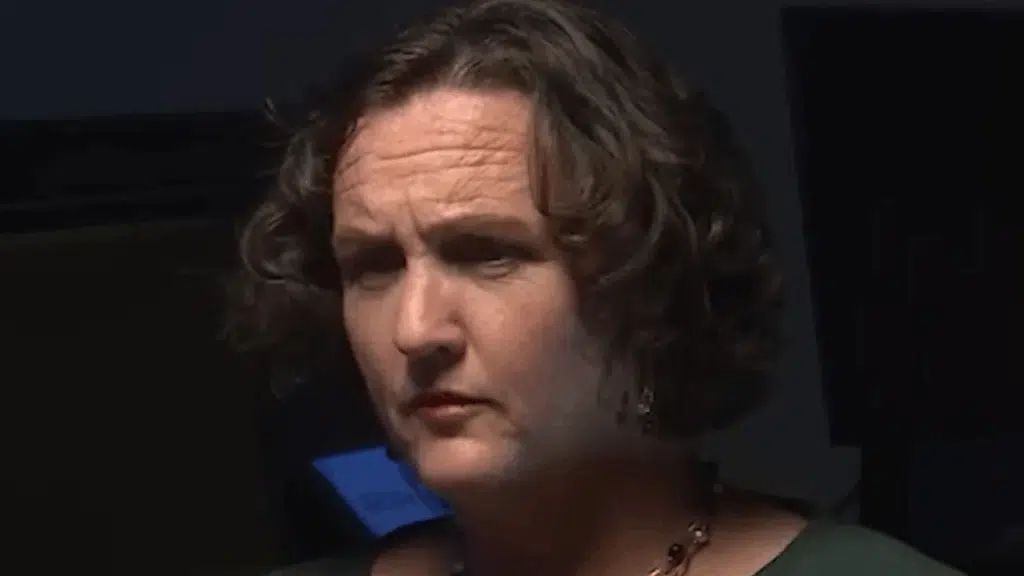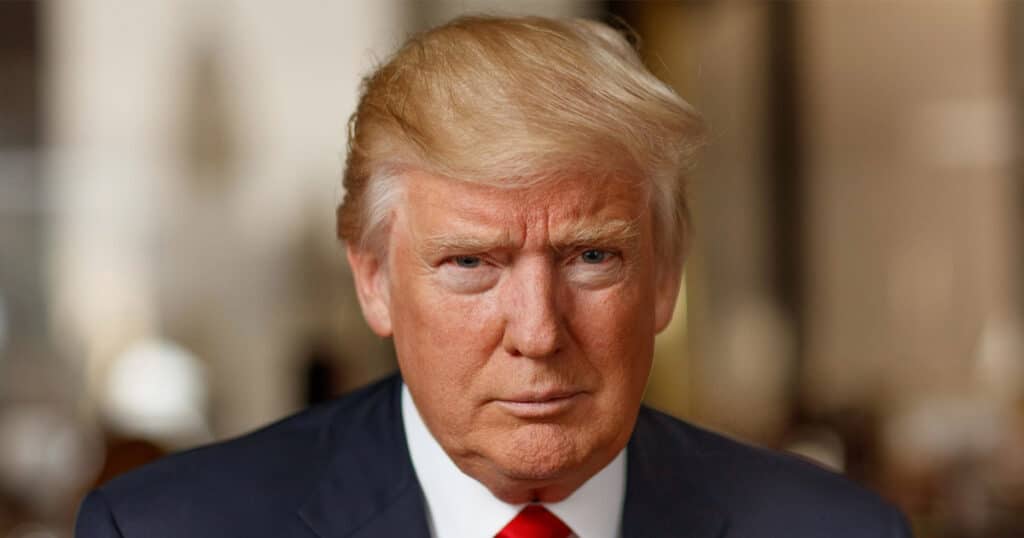
Girl Scouts Go From “Woke” To “Radical Woke,” See Ya Samoas And Thin Mints
Truthfully, I gave up Girl Scout cookies several years ago when the began their trip to “wokeville” by insisting that girls should be allowed in boy scouts, oh excuse me I meant to say Scouts BSA. I felt the same way when a few years back the Salvation Army called on Christians to “lament, repent and apologize for racism.”
It actually made me feel invigorated to walk by those irritating cookie stands that are set up outside of every store during their cookie drive. Now, I can do it totally guilt free knowing that I’m not supporting an organization that supports transgenderism and by doing so advances it proliferation by adding to the indoctrination of minors.
The Girl Scouts of Northern California (GSNORCAL.ORG) has mailed out their “Camp Culture Code” and many parents are shocked by it.
The “Code” is broken up into six “Sections” with either subgroups of instructions, or questions and answers segments for clarification under each. For the sake of this article, I will list what I believe are the most disturbing under each section.
Section 1: Introduction to the Camp Culture Code
(About Camp Culture Code:)
“Camp is a place where everyone should feel comfortable being their authentic self. As the youth mental health crisis grows increasingly urgent, GSNorCal dedicates ourselves to making all youth feel seen, heard, and safe. In the residential space of camp, this culture is especially empowering for youth. Our campers develop the confidence to love who they are, to feel that they are valued, and to experience the warmth and kindness of peers and mentors. The Culture Code is a pledge to ensure all campers and staff feel valued and safe at camp.”
(How does the Culture Code affect me and my camper?)
“At Girl Scout Camp, we all commit to actively building a sense of belonging for all of our community members. We ask all staff, volunteers, parents, caregivers, and youth to commit to working towards the practices of LGBTQIA+ Allyship, Antiracism, and Anti-Oppression. The Girl Scout Movement strives to be a safe place to stand against hate and discuss issues that are dividing our nation. If you are someone who is not open to participation in anti-racism and LGBTQIA+ allyship work, our camp programs are not a good fit for you and your child. If you have any questions or concerns about what this commitment to Diversity, Equity, Inclusion and Belonging means, please do not hesitate to reach out to [email protected]. We would be more than happy to discuss this Culture Code with you.”
(Key Terms for Allyship)
“Diversity – Psychological, physical, and social differences that occur among any, and all individuals; including but not limited to race, ethnicity, nationality, socioeconomic status, education, marital status, religion, language, age, gender identity, sexual orientation, mental or physical ability, perspectives, learning styles, etc.”
“Inclusion – The guarantee of fair treatment, access, opportunity, and advancement while at the same time striving to identify and eliminate barriers that have prevented the full participation of some groups.”
“Discrimination – The unfair or prejudicial treatment of people and groups based on characteristics such as race, gender, age or sexual orientation.”
“Equity – The guarantee of fair treatment, access, opportunity, and advancement while at the same time striving to identify and eliminate barriers that have prevented the full participation of some groups.”
“Belonging – Feeling accepted as a member or part. Acceptance does not mean you agree on everything with everyone around you. Sharing your differences and still accepting a person creates peace. Belonging focuses on our connections, rather than our differences.”
“Discrimination – The unfair or prejudicial treatment of people and groups based on characteristics such as race, gender, age, or sexual orientation.”
“Racism- Prejudice, discrimination, or antagonism directed against a person or people on the basis of their membership in a minority or marginalized racial or ethnic group.”
“Homophobia-Fear, hatred, discomfort with, or mistrust of people who are lesbian, gay, or bisexual.”
“Transphobia -Fear, hatred, disbelief, or mistrust of people who are transgender, thought to be transgender, or whose gender expression doesn’t conform to traditional gender roles.”
“Ableism- The discrimination of and social prejudice against people with disabilities based on the belief that typical abilities are superior. Ableism is rooted in the assumption that disabled people require ‘fixing’ and defines people by their disability.”
“Religious Discrimination-Opposition or hostility towards another because of their religious beliefs or lack of religious beliefs.”
“Classism – The systematic oppression of subordinated class groups to advantage and strengthen the dominant class groups, assigning characteristics of worth and ability based on social class.”
“Privilege-Refers to certain social advantages, benefits, or degrees of prestige and respect that an individual has by virtue of belonging to certain social identity groups. These privileged social identities correlate to people who have historically occupied positions of dominance over others.”
“Intersectionality-The acknowledgement that everyone has their own unique experiences of discrimination and oppression and we must consider everything and anything that can marginalize people – gender, race, class, sexual orientation, physical ability, etc.”
“Allyship– The role of a person who advocates and actively works for the inclusion of a marginalized or politicized group in all areas of society, not as a member of that group but in solidarity with its struggle and point of view and under its leadership.”
Section 2: Gender and Identity
(Key Terms and Concepts – Gender and Identity)
“It is critical to note the important differences between definitions of identity, expression, sex, attraction, and other key vocabulary. For more information, go to The Genderbread Person | A free online resource for understanding gender identity, gender expression, and anatomical sex.
“Gender Identity – A person’s psychological sense of self. This is how a person has come to understand themselves to be. This may or may not align with their sex assigned at birth.”
“Sex assigned at birth – A term that a medical professional uses to describe a child at birth based on their external anatomy.”
“Gender Expression – How someone presents themselves on the outside. This may be expressed by the way someone acts or their clothing and is typically associated with presenting either masculine or feminine.”
“Gender-Expansive – A person who may have a more flexible range of gender identity and/or expression than typically associated with the gender binary.”
“Non-binary – Describes a person who identifies outside of the gender binary. Non-binary people may identify as being neither a man or a woman, male or female, boy or girl, both a man and a woman, somewhere in between, or as falling completely outside these categories entirely.”
“Transgender – A term used to describe people whose gender identity and/or expression differs from cultural expectations based on the sex they were assigned at birth. Being transgender does not imply any specific sexual orientation.”
“Trans-Female: a trans female is a woman/girl who was assigned male at” birth.
“Trans-Male: a trans male is a man/boy who was assigned female at birth.”
“Cisgender – A term used to describe a person whose gender identity aligns with their sex assigned to them at birth.”
“Queer – An umbrella identity term used by people who do not conform to norms of heterosexuality and/or the gender binary.”
(Who will be at camp?)
“Girl Scouts of Northern California’s camps serve campers who have been historically marginalized and systemically excluded from outdoor spaces. We center the voices and experiences of girls and women and welcome all campers and staff who identify with the girl experience. This can and does include cisgender girls, gender-expansive youth/ non-binary youth, and trans-female and trans-male youth.”
(Are GSNorCal camps for “girls only”?)
“No. Our camps serve cisgender girls, gender-expansive youth, non-binary youth, and trans-female and trans-male youth. Our camps are staffed with youth development professionals of all gender identities.
At GSNorCal, we recognize that gender is not binary, and we reject the notion that everyone must be exclusively male or exclusively female. As members of the Girl Scout community, we embrace a youth-centered approach to notions of sex and gender. We have expanded our understanding of who belongs at Girl Scout camp, and are committed to serving all youth who identify with the girl experience.
Camp is a space where identities and pronouns are respected and celebrated. Some kids who attend camp have come to understand their gender identity does not align with female. Children should not have to keep their identity a secret to retain a place in our program. If a camper identifies as gender-expansive, non-binary, or trans, they will be welcomed at GSNorCal’s camps.
Girl Scouts is committed to providing brave spaces that empower girls and marginalized groups through a break from dominant culture. Camp works to provide safety, care, and confidence-building opportunities where our campers can thrive. In an effort to establish this break from dominant culture, GSNorCal does not enroll cisgender boys at our council-run resident camps. Cisgender boys may enroll in family camp programs.”
(Will my camper be asked to share their pronouns?)
“Yes. However, we will never force anyone to disclose or discuss these aspects of their identity. We will ask how your camper would like us to refer to them during their time at camp and to share their pronouns if they are comfortable doing so. As with everything at camp, sharing pronouns is challenge-by-choice; campers who would prefer not to share will not be pushed to. Counselors will model this by sharing their pronouns with groups.
It is the camper’s decision who they disclose information about their identity to. We value the relationships and trust we build with campers while at camp. For this reason, we will not break the trust and confidentiality of the camper unless it pertains to their or others’ safety. This includes, but is not limited to, anything the camper discloses with regards to their gender identity or sexual orientation. We encourage campers to share their identities with people at home if and when they feel safe doing so.”
(Are all of the camp staff women?)
“No. Applicants are encouraged to apply without regard to gender identity, gender expression, or sexual orientation. Our staff reflect a spectrum of gender identities and have a wide range of lived experiences. It is important to us that our staff reflect the diverse groups of campers we serve. We believe that our campers should have the benefit of a diverse group of role models.”
(What about bathrooms, showers, bunks, etc.?)
Bathrooms and Showers
“Privacy is an essential and fundamental right of everyone at camp. This includes toilets, changing areas, and showers, which are single-use and all-gender. Staff members have separate spaces to shower and use the restroom that they do not share with campers. At no point are bathrooms occupied by staff and campers at the same time. Campers and staff members can also utilize lockable bathroom stalls as private changing spaces.”
Bunks
“There is only one body per bed at camp. Beds are considered private spaces that are not shared with others. Campers have separate sleeping spaces from staff members. If a camper needs the attention of a staff member during the night, they will have access to the staff member cabin/ sleeping area.
Campers are grouped in living units by age and not by gender identity.”
Swimsuit Policy
“For the emotional safety and equity of all our campers, our swimsuit policy for camp includes both a top and a bottom covering for all campers and staff members, regardless of gender identity. Some examples of this may look like a rash-guard and boardshorts, a bathing suit top and bottom (navels do not need to be covered, but chests do), or some combination of the two. This policy is also extended to camp staff.”
(What if gender identity questions are raised at camp?)
“We respect and nurture belonging and safe spaces for every camper by respecting their gender identity. While we invite every camper and staff member to share their pronouns, we will only discuss gender identity with campers if questions are raised organically. If questions or issues about gender identity arise among campers, staff are trained to address the questions or issues with respect and in an age-appropriate manner. We do not discuss camper or staff bodies or sex assigned at birth.
This is in alignment with GS NorCal’s commitment as outlined in our Culture Code for Equity & Belonging and Volunteer Policy for Building Equitable Community for All.”
Section 3: Sexual Orientation
(Key Terms and Concepts – Sexual Orientation)
“Sometimes, families and campers may be confused about how gender identity and sexual orientation differ. It’s important that this is clear to all, since Gender Identity is a topic we openly discuss at camp, and Sexual Orientation is a topic we do not actively discuss.”
“Gender Identity is about how you feel about yourself. It doesn’t involve anyone else and should be respected at all times.“
“Sexual Orientation is about how you feel about others, referring to who someone feels romantically and/ or emotionally attracted to. Unlike Gender Identity, it is a topic that is largely irrelevant to most youth programming.“
About Key Terms: “There are many identifiers that correspond to people’s individual romantic or sexual orientations. Examples include straight, gay, lesbian, bi-sexual, pan-sexual, etc. What identifier suits an individual is a personal choice.“
“Queer is an umbrella identity term used by people who do not conform to norms of heterosexuality and/or the gender binary.“
Section 5: Racial and Ethnic Diversity
(How does GSNorCal practice anti-racism)
“GSNorCal strives to promote equity by centering our attention on our Black people, Indigenous people, and People of Color-identified (BIPOC) community members who are furthest from racial justice. Girl Scouts can be catalysts for change, promoting equitable outcomes for all members as they strive to make the world a better place. This is outlined in GSNorCal’s Culture Code for Equity and Belonging.”
“The ongoing violence that is occurring against countless BIPOC reaffirms that racism is not a thing of the past. GSNorCal has made a continued commitment to becoming an antiracist organization. Antiracism is the practice of proactively working towards dismantling racist views, cultures, and systemic practices that have historically oppressed, and continue to prevent BIPOC from participating, prospering, and reaching their full potential in our society. Systemic racism affects everyone, including our campers, and requires care and commitment to dismantle.”
(What are GSNorCal’s practices for equity, Inclusion and belonging?)
“At GSNorCal, we are part of a movement to build equity, inclusion, diversity, and belonging. We work to end all forms of oppression. As a leader, that means I…
DISCOVER myself in a racist and unjust world.
- I understand our world was built on structural racism.
- I recognize there are intersections between racism and all forms of oppression.
- I acknowledge that white people benefit from unearned privileges based on skin color.
- I honor the legacy of Freedom Fighters who came before me.
- I learn key terms to empower myself as a student of social justice.
CONNECT with my heart wide-open
- I value relationships with people who are different from me.
- I know hurting hurts, even if I didn’t mean to do it.
- I believe you if you tell me you’ve been harmed.
- I can tolerate feeling uncomfortable while I learn.
- I take the risk and have courageous conversations.
TAKE ACTION to make the world better for all people.
- I center and nurture the leadership of people of color.
- I listen and take in feedback as a gift
- I speak up about racism and all forms of oppression.
- I work to change policies to be racially equitable.
- I take responsibility for things I say and do.
Section 6: Spirituality and Faith
(What are GSNorCal’s guidelines for respecting one another at camp?)
“We reject the idea that one person’s belief can invalidate another’s identity. Invalidating one’s experience or identity causes harm, which is not conducive to a positive community culture. Regardless of a camper’s belief system, this means we do not tolerate:
Passing any type of judgement about another’s religious or spiritual beliefs.
Telling anyone that their beliefs, gender identity, sexual orientation, pronouns, etc. are “wrong”.
Failing to acknowledge one another’s pronouns.
Using personal beliefs as a reason to exclude or bully one another.
Promoting one’s personal religion or spiritual beliefs as “superior” to others.”
The most disgusting part of this entire “Leftist Culture Code” for me is frankly … everything, but Section 5 is so totally wrong that I would immediately cancel my child’s trip and demand a refund.
Did you ever imagine that something that used to be as wholesome as the Girl Scouts would be filling our children’s heads with this type of division, hatred and lies. If you are white they are literally teaching, guilt, grief, and shame and that your heritage is corrupt.
Wake up America. Nothing is the same, so trust your children with no-one.


